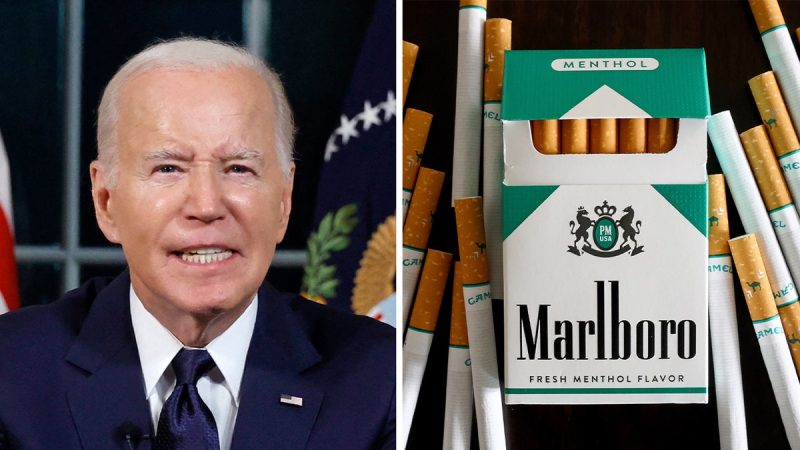In a surprising turn of events, the Biden administration has decided to postpone its plan to ban menthol cigarettes, a move that has sparked intense debate and opposition from various sectors of society. Originally slated to take effect soon, the decision to delay the ban has left many questioning the motives behind the administration’s sudden shift in policy.
The proposed ban, which aimed to prohibit the sale of menthol cigarettes and flavored cigars, was seen as a crucial step in addressing the disproportionately high rates of smoking among certain communities, particularly Black Americans. Menthol cigarettes have long been marketed aggressively towards minority populations, contributing to higher rates of tobacco-related illnesses and deaths in these communities. By banning menthol products, the administration hoped to reduce these health disparities and improve public health outcomes.
However, the delay in implementing the ban has raised concerns about the influence of powerful lobbying groups and industry interests on government decision-making. Critics argue that the tobacco industry has exerted significant pressure on the administration to postpone the ban, citing the potential economic consequences for tobacco companies and retailers. The decision to delay the ban has thus been viewed as a betrayal of public health priorities in favor of corporate interests.
Opponents of the ban have also raised arguments about personal freedom and individual choice, framing the issue as a matter of civil liberties. Some have argued that banning menthol cigarettes infringes on people’s right to make their own decisions about their health and lifestyle. This perspective has further fueled the debate surrounding the proposed ban, complicating the already contentious issue.
Despite the postponement of the ban, advocates for public health and community well-being continue to push for stricter regulations on tobacco products, especially those that target marginalized populations. The fight against menthol cigarettes and flavored cigars is far from over, and the Biden administration’s decision to delay the ban has only intensified the ongoing debate surrounding tobacco control policies.
As the discussion over the ban on menthol cigarettes evolves, it remains to be seen how the administration will navigate the complex interplay between public health objectives, industry interests, and individual freedoms. The delay in implementing the ban has highlighted the challenges and complexities inherent in enacting effective tobacco control measures, underscoring the need for nuanced and comprehensive approaches to address the harms of smoking in our society.

